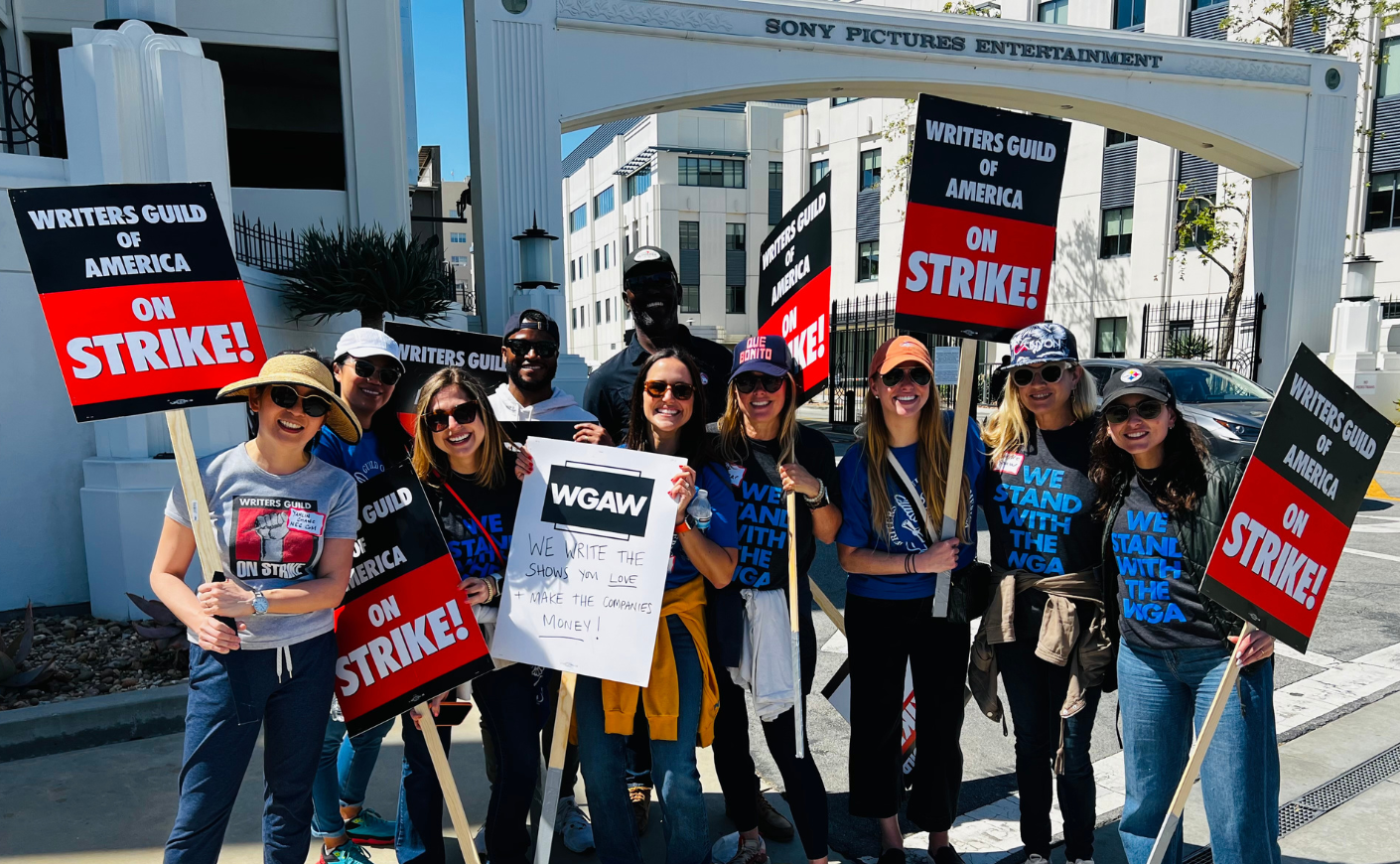For the first time in 15 years, members of the Writers Guild of America East and West are officially on strike, halting writers’ rooms on both coasts and American productions around the world.
If you’re wondering how we got here, a brief explainer: Every three years, the WGA renegotiates our Minimum Basic Agreement (MBA), which determines weekly and episodic base pay for television writers and compensation for feature writers. Our current contract expired on May 1 at midnight, and since the WGA Negotiating Committee wasn’t satisfied with the agreement proposed by the Alliance of Motion Picture and Television Producers (AMPTP), we are on strike as of 12:01 am on Tuesday, May 2.
The WGA Negotiating Committee has spent the past six weeks negotiating with Netflix, Amazon, Apple, Disney, Discovery-Warner, NBC Universal, Paramount, and Sony under the umbrella of the AMPTP. The core issues at stake are fair and commensurate compensation and residual payments, increased transparency about series performance and metrics, and the inclusion of writers in all phases of making a movie or television show.
While the past 10 years have undeniably been an era of “peak TV” that’s resulted in the explosion of streamers and new platforms, writers’ salaries have stagnated and the entire screenwriting profession is facing what the Guild deems an existential crisis. The television landscape, once dominated by broadcast shows with 22 episodes a season, has been upended by streaming, whose shows typically run eight to 10 episodes a season. This means there are fewer episodes for up-and-coming writers, shorter writers’ rooms, and all around less money for the people who create the content that makes these companies profitable.
The streaming model has also disrupted the entire production pipeline in a way that hurts writers financially and precludes them from gaining the skills required to run a show and see it through from first script to final cut. Whereas a broadcast show would have its writers’ room, production, and post-production happening at the same time, premium cable and streamers divide the process into three distinct phases, and in many cases, all scripts have been turned in before production even begins.
But it’s the Guild’s position that writing doesn’t end at the production draft — scripts are constantly rewritten to accommodate story, dialogue, location, and other changes on set. In editorial, the writing process continues as scenes are reordered, rejiggered, and sometimes lifted completely from an episode. And based on an episode’s progress in the edit bay, a showrunner might decide they need to write and film a new scene altogether. If they have no writers on staff or on set, they’ll have to shoulder that work themselves, in addition to their countless other tasks.
To cut corners and save money, studios have used “mini-rooms” to eke out as much work from a small number of writers in the shortest amount of time possible. And by denying the necessity of writers on set and in post, they’ve deprived an entire generation of writers and future showrunners from gaining the experience they need to continue making award-winning and profit-driving movies and shows. As the Negotiating Committee put it, “the companies’ behavior has created a gig economy inside a union workforce, and their immovable stance in this negotiation has betrayed a commitment to further devaluing the profession of writing.”
While they hoped to address these issues through reasonable conversation, that time has passed. The decision to strike, supported by more than 97 percent of voting Guild members, is not taken lightly, and the ramifications will be serious and far-reaching. While viewers will lose their beloved shows (with late night and SNL among the first to go dark), tens of thousands across the industry will be put out of work, including the builders, carpenters, drivers, caterers, assistants, and support staff without whom writers’ rooms and productions couldn’t function. To that end, the Guild has set up a charitable fund through the Entertainment Community Fund to help those negatively affected by the strike.
The coming weeks will undoubtedly be filled with struggle and uncertainty, but also community, unity, and solidarity as writers and their allies come together to demand fair pay for making the movies and shows we all love.
Ellie Monahan is a writer and producer whose credits include the TV series The Boys. She’s also the daughter of our very own Katie Couric.









